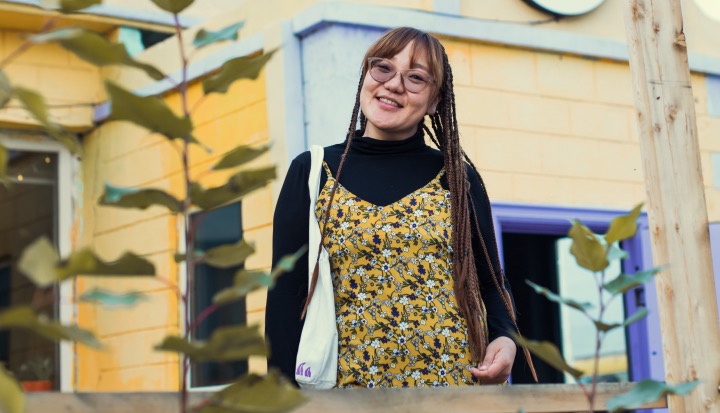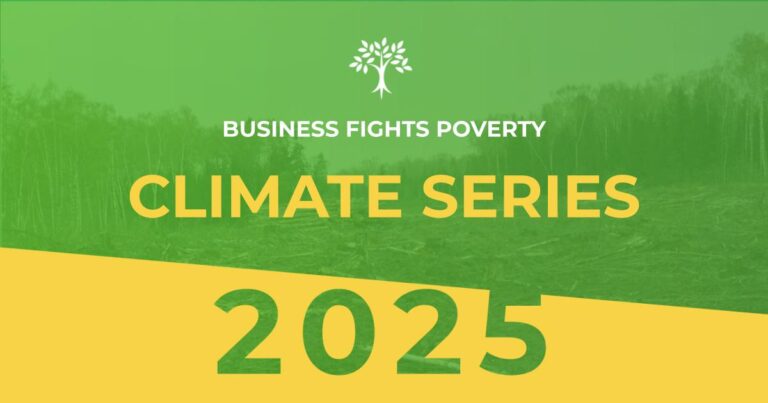The challenges of our time—climate change, inequality, and environmental degradation—demand urgent and innovative solutions. Traditional profit-driven business models have often contributed to these crises, but business itself holds the potential for transformation. By redefining success to prioritize environmental stewardship, economic inclusion, and social well-being, businesses can be the driving force for achieving the Sustainable Development Goals (SDGs).
At the heart of this transformative shift are young green and social entrepreneurs. These leaders of change bring passion, innovation, and a fresh perspective to solving complex social and environmental challenges. However, despite their potential, they face significant barriers that prevent them from scaling their impact. Youth Business International (YBI), in collaboration with its Mongolian member, Development Solutions, is advocating for a global movement to better support these young changemakers, as outlined in our recent policy paper, “Incentivizing and Supporting Green and Social Business Models Among Young Entrepreneurs to Advance the Sustainable Development Goals”.
The Critical Role of Green and Social Entrepreneurs
Social and green enterprises are more than businesses; they are catalysts for systemic change. Globally, social enterprises generate approximately $2 trillion annually and create nearly 200 million jobs, according to the World Economic Forum. These impact-driven enterprises are essential to sustainable economic development, contributing directly to the SDGs by addressing issues such as poverty, education, clean energy, and climate action.
Young entrepreneurs are particularly well-suited to lead this movement. Motivated by a deep commitment to making a difference, they approach business with a purpose-driven mindset, embedding social and environmental goals into their operations. A 2022 study commissioned by YBI found that young entrepreneurs under 35 are twice as likely as their older counterparts to prioritize solving social or environmental problems through their businesses.
These young leaders bring a unique combination of local insight and global awareness, leveraging emerging technologies and innovative business models to drive impactful change. However, for their businesses to thrive, they need the right support systems.
The Barriers Holding Back Youth-Led Impact Businesses
Starting a business is never easy, but the hurdles are particularly high for young entrepreneurs pursuing green or social missions. Among the most pressing challenges are:
- Access to Finance: Investors often view green and social enterprises as riskier due to longer return-on-investment timelines. Young entrepreneurs struggle to secure funding, with less than 15% of social enterprises in low-income countries accessing adequate financing.
- Regulatory Complexity: Ambiguous and fragmented regulatory environments can hinder the growth of social and green enterprises. Without tailored legal frameworks, these businesses face unnecessary operational hurdles.
- Consumer Adoption: While consumer interest in sustainable products is growing, price sensitivity and scepticism remain barriers. For young entrepreneurs with limited marketing budgets, competing against established brands can be daunting.
- Supply Chain Challenges: Ensuring environmentally and socially responsible supply chains is both costly and logistically complex, especially for startups.
- Impact Measurement: Demonstrating tangible social or environmental impact is essential for attracting investors and customers. Yet, the lack of standardized metrics and limited resources for impact assessment complicates this process.
A Call to Action
If we are to unlock the potential of young green and social entrepreneurs, we must come together—governments, businesses, investors, and civil society—to create a supportive ecosystem. YBI and Development Solutions urge stakeholders to take the following actions:
- Establish Youth-Focused Funds: Governments and financial institutions should create investment funds specifically targeting youth-led green and social enterprises, paired with tax incentives for investors.
- Streamline Regulations: Simplify legal processes and introduce tailored frameworks that recognize and support the unique needs of social and green businesses.
- Promote Green Incentives: Provide subsidies and tax breaks for businesses producing sustainable products, making green alternatives more competitive and accessible.
- Ensure Supply Chain Integrity: Support young entrepreneurs in building transparent and responsible supply chains through tools, partnerships, and incentives.
- Standardize Impact Metrics: Develop unified frameworks for measuring impact and provide training to help entrepreneurs communicate their results effectively.
- Incorporate Skills in Education: Integrate green and social entrepreneurship skills into educational curricula to prepare the next generation of changemakers.
Building a Movement for Change
The challenges we face today cannot be addressed by isolated efforts. They demand a collective commitment to fostering innovation, collaboration, and resilience. Supporting young green and social entrepreneurs is not just about helping individual businesses succeed—it is about transforming economies and creating a sustainable, equitable future for all.
The time for action is now. Together, we can empower the next generation of changemakers to lead the way in advancing the Sustainable Development Goals and building a world where business truly serves people and the planet.
Join us in this vital movement. Explore YBI’s and Development Solutions’ policy paper “Incentivizing and Supporting Green and Social Business Models Among Young Entrepreneurs to Advance the Sustainable Development Goals” here.










